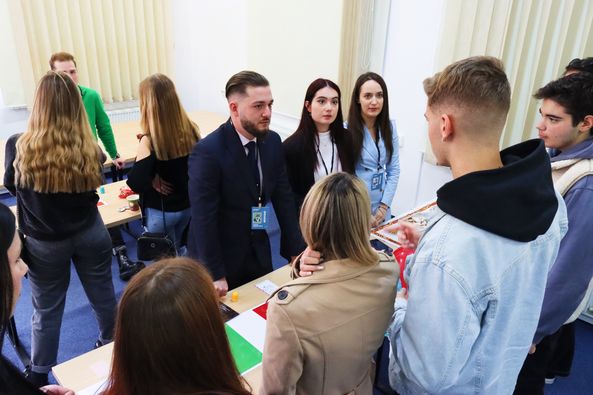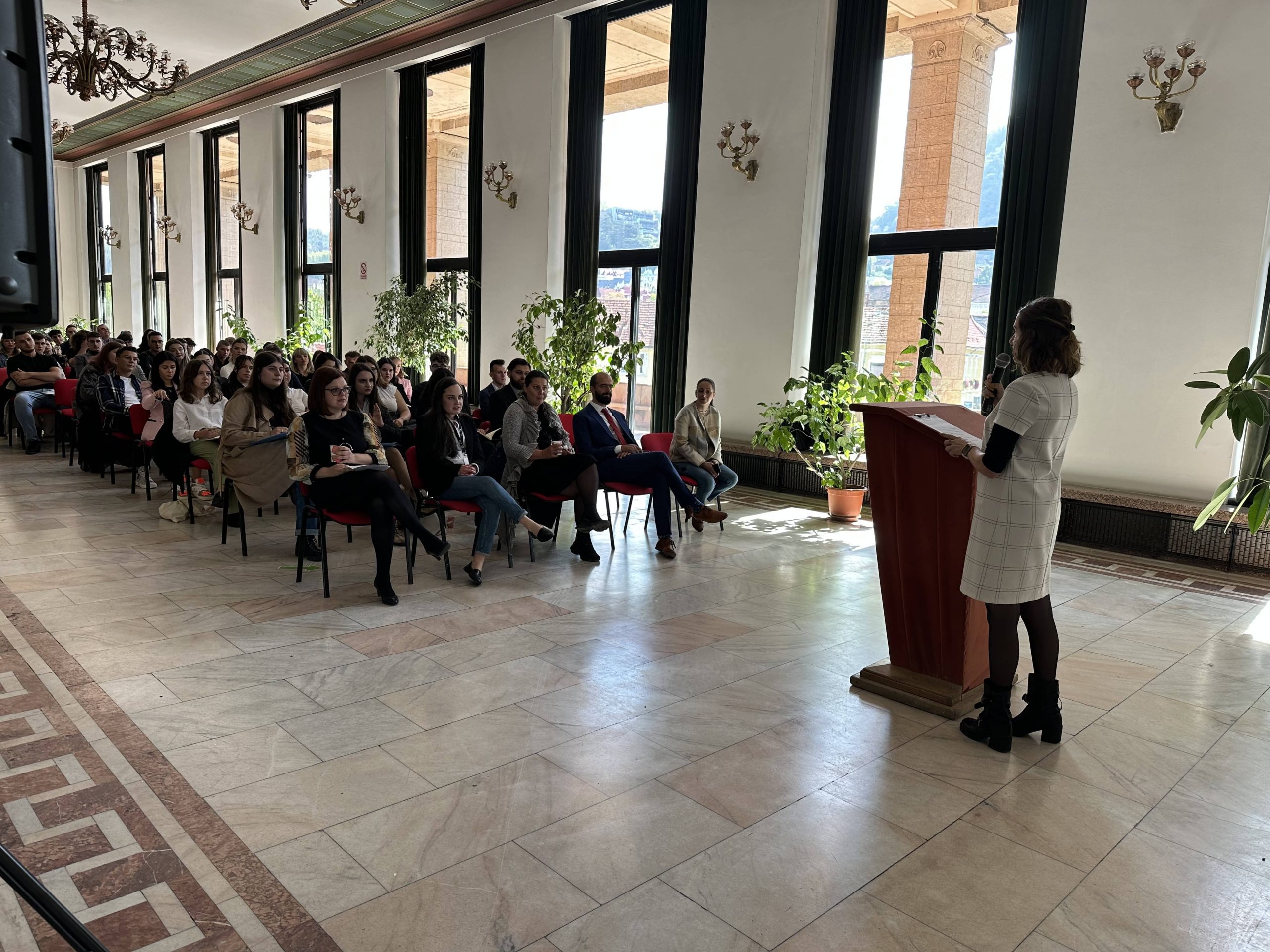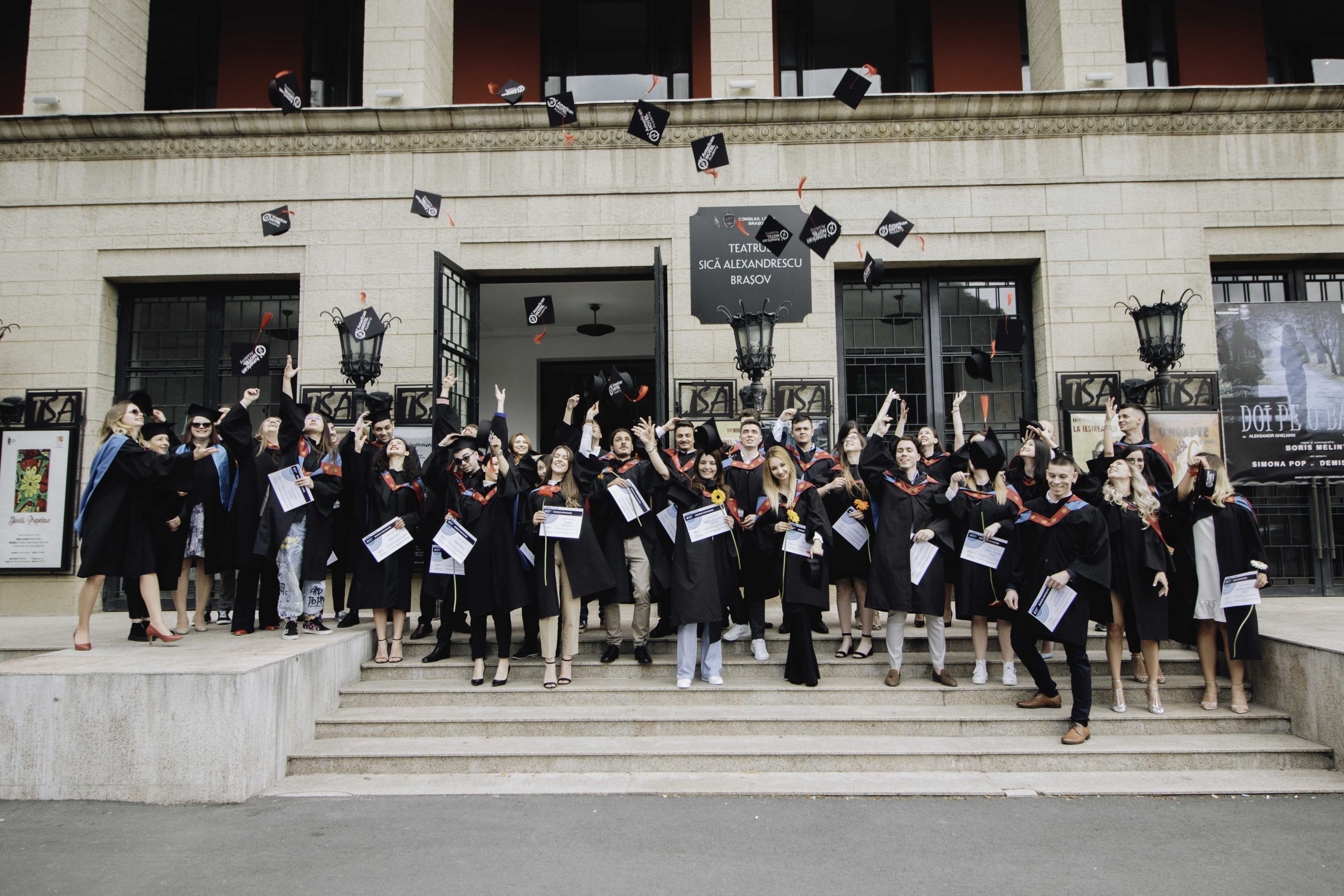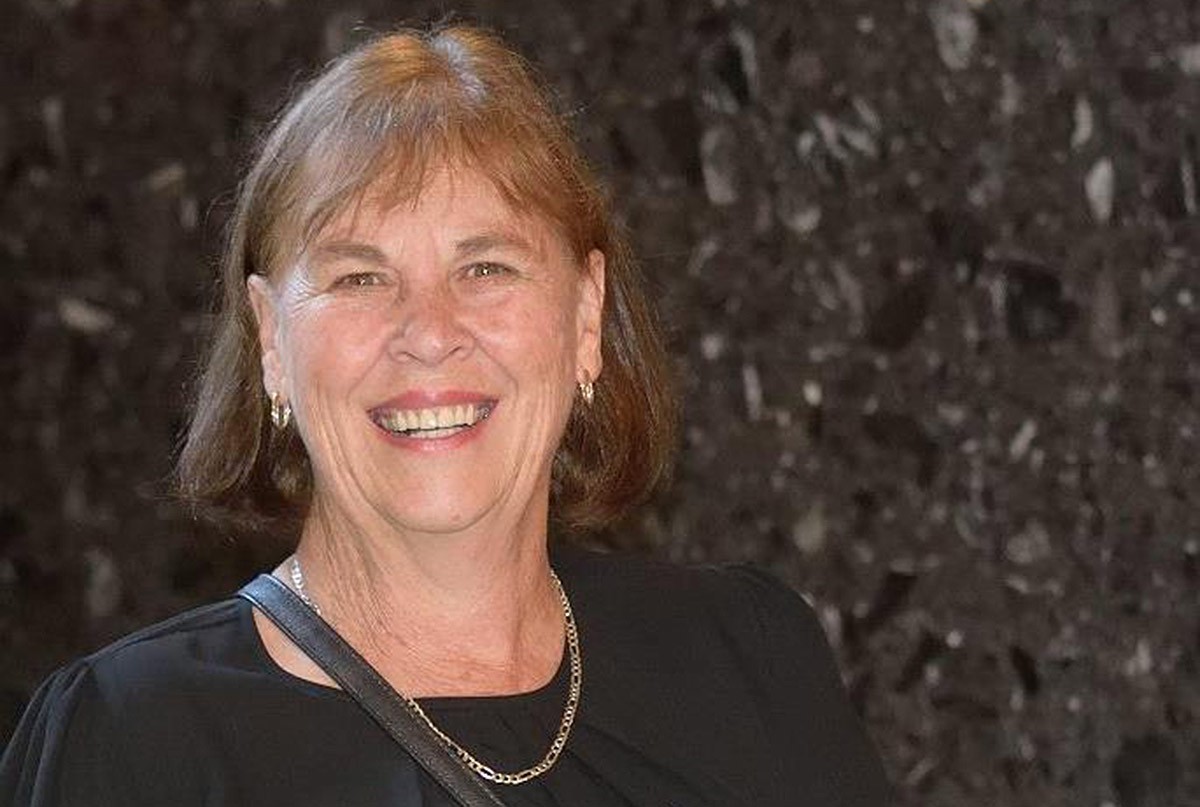
Humans of AHA – Anne Taylor
Introduction
Four years ago she took a bold decision: to move from South Africa to Brasov, Romania. She was a professor at the University of Johannesburg for 45 years. She did not know how much impact this move would have on her, but she liked the academy’s concept and the people working behind it, so she took the plunge.
Anne Taylor is no ordinary lady with grandchildren and recipes, smelling of cooked food, like our granny’s perfume. Sure, she has all that, but also an extension of that. She has her granddaughters whom she is enormously proud of and all the recipes already in her head, since cooking was not only connected to the teaching part of her life, but also to one of her greatest passions.
That extension is also connected to her students and to the love for teaching. Everywhere she went, she wanted to learn, to experience, but, to balance it all out she gave back one of the most valuable treasures of all time: She gave back knowledge.
As a lecturer, she loves to teach.
As a person, she always looked through things with her own lenses: with the attitude of a survivor, with wisdom, embracing the new, being spiritual, helpful, friendly and looking for the bright side of everything.
Anne was for 3 and-a-half years part of American European Education’s academic team. First as a lecturer at American Hotel Academy, then she embraced the new TASTE Culinary Business Academy project, having an important role there and using her longtime passion and expertise. And then there was the Master of Science in International Tourism & Hospitality Business Management’s Coordinator position.
In 3.5 years with us, she was a part of all our lives and projects. And we are thankful for having her here. She is definitely one of our precious Humans of AHA and TASTE.
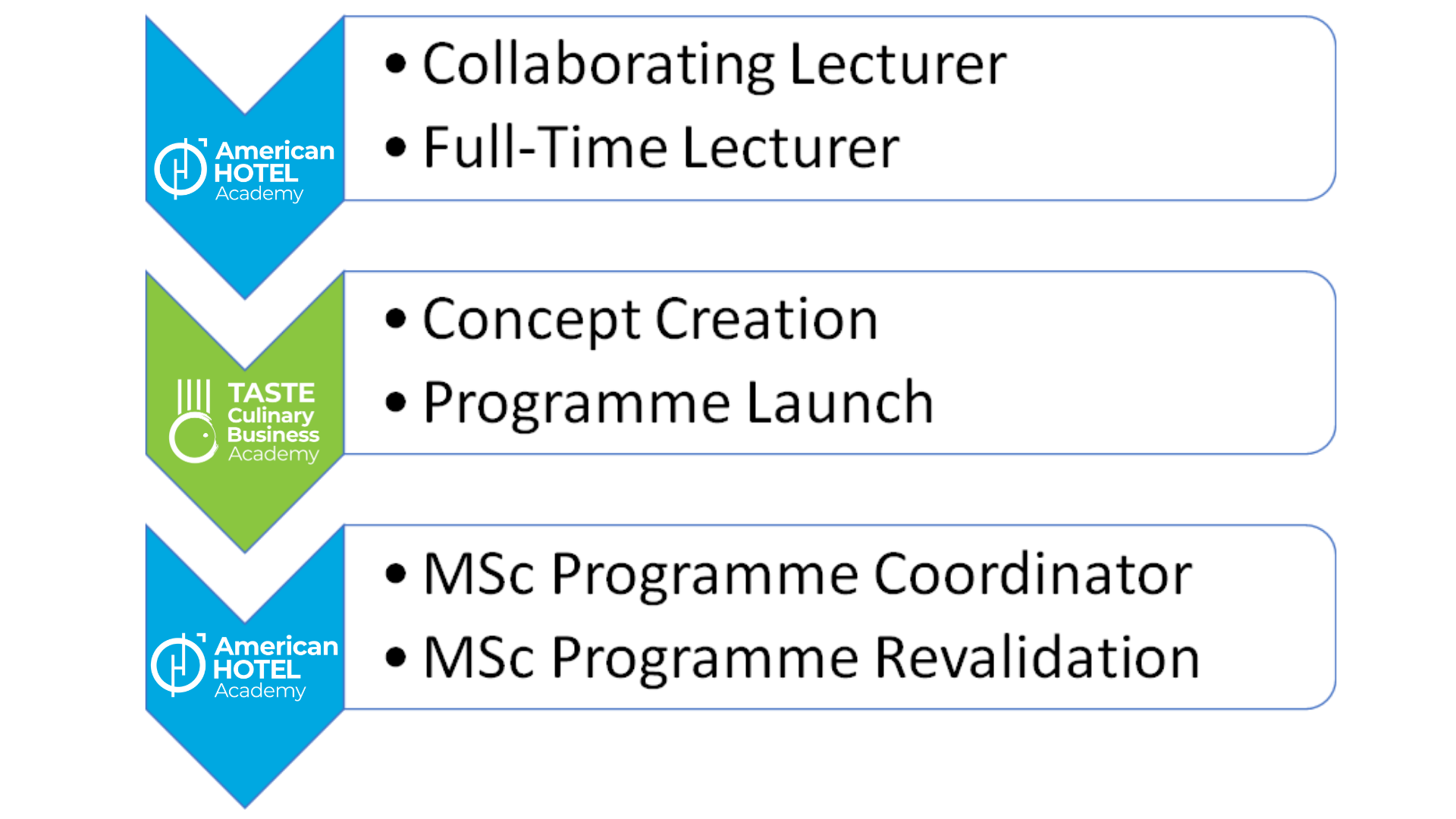
The time spent at American Hotel Academy
Q: What were the things that you cherished most during the past 3 years spent at American Hotel Academy?
My most cherished moments include the warmth and hospitality which I experienced on arrival in the middle of a very cold period. It was January 2016. I have warm memories of learning to walk in snow and ice! Then, it was the dressing warmly and central heating – all of which were a very different way of spending January (coming from South Africa). Also, the opportunity to pick up as being a full-time member of the academic team, after 6 years of being a collaborator to the academic department.
I arrived full of enthusiasm for an educational environment in which my beliefs and educational principles were embraced – pride within the environment for delivering a really worthwhile educational experience to students. The academic staff are so dedicated, so willing to offer their knowledge, and to encourage a love for academic knowledge and applied knowledge in their fields.
I loved the students at AHA – their effort to become good at what they did and changing from year to year, after their internship opportunities. Watching them develop and change over the years is always rewarding.
Students are the same around the world: young in their thinking and knowledge; rich in braveness and courage to embrace their new found freedom away from school; and getting ready to plan for their careers and futures.
American Hotel Academy offered that in a unique package of educational excellence, student-centered thinking and guidance; and an environment that offered what students required to be successful in their chosen careers. I was proud to be able to be part of that experience for them, to share and to learn from the students. Which I did.
I cherish the staff, the students, the friends I made (who are still my friends), the opportunities offered to me – overall my entire journey for the 42 months I was there. I am very grateful to the management and staff, and students and friends, for this wonderful experience towards the end of my education career.
“I loved the students at AHA – their effort to become good at what they did and changing from year to year, after their internship opportunities. Watching them develop and change over the years is always rewarding.”
New Challenge: Launching TASTE
Q: While you were here, a new academy was born. What did TASTE Culinary Business Academy represent for you and what was your role in that project?
There had been talks about a culinary programme for as long as I have known the Academy – since newly into its inception in the 2000’s. Research and investigation into possible routes to follow, to achieve this brought together the thinking of a degree programme, rather than only a skills-based programme. Internationally this is a challenge to achieve. Following a business management focused programme, with emphasis on the production of food in various environments allowed for the Academy to design and deliver a unique programme. Here students could be nurtured into food production, while developing their business acumen.
A very important combination at present, as it is a known fact that many culinary businesses do not achieve success unless the chef / owner / entrepreneur is also business focused, and a specialist at what they present to the consumer. From a take-away, food truck, small business to high-end restaurant – all have the same demands of the individual: being good at a skill level, with being passionate about the consumer experience. And having the discipline to apply business principles and practices to your career.
Being part of the team that planned, prepared the paperwork, and achieved the accreditation was a huge part of my life for a while – and I am immensely proud of the product, the staff dedication and the support for getting it off the ground.
I believe this is such a wonderful programme, that it can offer a student a wonderful opportunity to be successful within a challenging and demanding industry.
“Here students could be nurtured into food production, while developing their business acumen. A very important combination at present, as it is a known fact that many culinary businesses do not achieve success unless the chef / owner / entrepreneur is also business focused, and a specialist at what they present to the consumer.”
Anne’s role in the Master’s Programme
Q: You were the Master Program Coordinator for the time spent in Romania. What were your most cherished moments in this position?
Being the coordinator of the Master’s programme was a privilege! At this level, the students are very different compared to under-graduate students. Working with learning adults, who are also often specialists in their own careers already allows for open minded thinking and diverse opinions. This is important at this level – students are encouraged to investigate academic thinking, while putting it into practice within a specific business environment. This develops a critical thinking ability – reading a lot is all part of the learning methodology – so opening your own thinking to differing and alternate concepts is the focus of any higher learning.
My cherished moments include still being in close contact with some of the students – they still share their achievements and career paths with me. Also developing a level of closeness to their academic journey to be able to hear critical feedback of their experiences with lecturers, other students and the programme itself. They bring a maturity of thinking, that is sometimes humbling in its depth of life realities.
“At this level, the students are very different compared to under-graduate students. Working with learning adults, who are also often specialists in their own careers already allows for open minded thinking and diverse opinions.”
Also, being part of the team that revalidated the programme: an intense and time-consuming process that is required to ensure that we offered the best we could, in order to attract students and to deliver what they need.
The Rainy Days
Q: What about the challenging moments?
Challenges always exist, and are made to make us re-evaluate our own understanding and insight into a situation. Cultural and language differences, educational experiences and student expectations all offer opportunities to experience, grow and change yourself.
I learnt to cope with very different weather, driving conditions, and even being brave enough to consider buying a car to drive on the other side of the road, whilst sitting on the other side in the car!
Work-based challenges always exist, working within a new language. I am not a linguist – although regret not having the energy or time to focus on learning (Anne is modest, she speaks five different languages, including some South African dialects).
Education During Pandemic Times
Q: How does a day in the life of a lecturer look like? (considering the new pandemic context)
“I do see education being shaken up. I do see changes coming. Every few decades have seen a change in approach to new educational demands, new thinking, new technologies – this has happened since Plato’s days – so this is NOT new.”
Anyone in education – whether pre-primary, school, contact learning, distance learning or course-based – has had to reinvent their learning and teaching beliefs and methods during the pandemic! Students have also had to adapt – a misunderstanding that one size fits all is not realistic view of learning! Students and lecturers tend to follow the methodology that fits their teaching style, and this, in term, fits to a student learning style. So, changes to the planning, teaching, and learning material, time-schedules, methods of reaching students has had to undergo rapid remodeling.
Classroom based materials do not fit online platforms. Student insecurity of asking questions seemed different during online session. Personalities do not come through as well. However, my experience and enquiry results go in huge admiration and praise for the lecturers, educators and support teams! Changing material, finding different material, sequencing the learning and assessments have all been part of the demanding changes required on a day-to-day basis.
This in term demands support of administrators, computer systems and connectivity challenges. All in a days’ work!
Q: From your experience in so many countries, teaching and practicing, working so close to people, how do you see that this pandemic will change education? Is online education a new trend or it’s just a form of adapting to this precise sanitary crisis and as soon as it will be history, we will get back to delivering education in the old manner?
The pandemic has forced everyone, and all environments to relook their methods of doing things, and this includes education. However, I believe the success of change is taking the consumer / student / employer/ employee with you on the journey of change. Some will not be open to change, others will embrace it, some will be challenged by the changes, other will resist it.
I do see education being shaken up. I do see changes coming. Every few decades have seen a change in approach to new educational demands, new thinking, new technologies – this has happened since Plato’s days – so this is NOT new. What IS relevant is the fact that the process of learning still involves certain steps – taking information and developing it from basic to more advanced information. Learning one fact before another concept can be understood and learnt or absorbed. This must still be the focus of education; not matter how you present and offer the information. Student-centered education means just that. Knowing how learning happens, and then presenting education in a way that makes it available to differing students – focusing on making knowledge available, and then how to be critical of what and how they learn.
Teaching and learning through crisis periods in the history of mankind is also NOT new. World wars, pandemics, civil wars, natural disasters and economic disruptors are part of the course of history being written. So adapting is part of the expectation of mankind, and also of educators and students. Online learning is only but one of the forms of making knowledge available to students. But learning also involves being critical about the knowledge presented, is it valid, is it the latest thinking – and how does it compare to the other knowledge we accepted as true.
The human touch. The messages. The precious gift.
Q: Is there something that you would like to transmit to AEE students& potential students?
“Be patient – you will probably achieve faster than your parents, have more opportunities than they did, but time is still the common denominator for us all. You will need to support yourself financially for a few decades of your life – so enjoy every year, every achievement, and every moment.”
Learn to be passionate about something in your life, and this passion will spill over into other aspects of your life! Accept that you will probably have more than one career in your lifetime, and thus learning will be a life-long experience for you. Whether it be in a classroom, online, in the workplace, in life and/or during your journey through it – embrace change and what it offers! Also learn to do the best you can at what you do – to meet your own expectation first of yourself, and then those of people around you.
Accept that you cannot be excellent at everything – find what you are good at, nurture that and develop it until you have more to offer to the world than most – that will make you great, and build your self-confidence.
Be patient – you will probably achieve faster than your parents, have more opportunities than they did, but time is still the common denominator for us all. You will need to support yourself financially for a few decades of your life – so enjoy every year, every achievement, and every moment.
Q: What about to their parents?
To the parents – your child sees life and work differently to the way you see it. Encourage them to be strong, be independent, be flexible, be courageous, and to accept defeat and challenges as part of their life journey. We, as an older generation, can only stand by as technology, education, job opportunities and demands change faster every decade.
Allow them to be the best they can be at what they choose as their career path. Hold them accountable to the commitments they make to themselves and life.
Q: And a message to your former students (some of them already graduates)…
To my former students – go well and go strong. Have a good time molding your individual lives. Above all – be humble! There will always be people who are bigger, stronger and more successful than us; your life path is different – so don’t compare too much! Take your mistakes and learn from them. Take your successes and analyze them carefully to critically be able to extract what you did right, and how you moved where to achieve your successes.
And never stop learning – whether it be another degree, another career path, life lessons, and just plain experience. Learn from it all – and enjoy every moment!
Knowledge is a precious gift – use it well.


